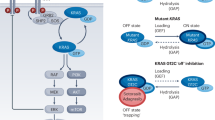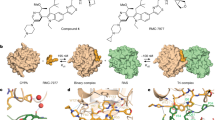Abstract
The level of expression of the multidrug resistance-associated protein (MRP1) in a panel of human ovarian carcinoma cell lines and their variants with acquired cisplatin resistance was determined using Western blotting. No overexpression of MRP1 was detected in any of the cell lines. In addition, we have transfected the MRP1 gene into an intrinsically cisplatin-resistant cell line SKOV3, previously shown to have elevated levels of glutathione (GSH). The MRP1-transfected line SKOV3-S2 was shown to be cross-resistant to doxorubicin, vincristine and etoposide but not to paclitaxel, vinblastine and platinum agents, such as cisplatin, JM216 [bis-acetato-ammine-dichloro-cyclohexylamine platinum (IV)] and AMD473 [cis-ammine dichloro (2-methyl-pyridine) platinum (II)]. No cross-resistance to any of the platinum agents was observed in a MRP1-overexpressing human lung cancer cell line with acquired doxorubicin resistance. Reduction of GSH levels (80-90%) by buthionine sulphoximine (BSO) produced significant potentiation in cisplatin sensitivity in the parental SKOV3, the vector-alone control SKOV3-puro and the MRP1-transfected line SKOV3-S2. The degree of sensitization was similar in all cell lines (1.6-fold). However, selective sensitization by BSO to vincristine was observed in the MRP1-transfected line (4.1-fold) but not in the vector control. No significant differences were observed in cisplatin accumulation in the SKOV3-puro and the SKOV3-S2 cells, although both these transfected lines accumulated significantly more than the parental line. Our results suggest that MRP1 does not play a significant role in platinum resistance in the human tumour cell lines investigated in this study.
This is a preview of subscription content, access via your institution
Access options
Subscribe to this journal
Receive 24 print issues and online access
$259.00 per year
only $10.79 per issue
Buy this article
- Purchase on Springer Link
- Instant access to full article PDF
Prices may be subject to local taxes which are calculated during checkout
Similar content being viewed by others
Author information
Authors and Affiliations
Rights and permissions
About this article
Cite this article
Sharp, S., Smith, V., Hobbs, S. et al. Lack of a role for MRP1 in platinum drug resistance in human ovarian cancer cell lines. Br J Cancer 78, 175–180 (1998). https://doi.org/10.1038/bjc.1998.461
Issue Date:
DOI: https://doi.org/10.1038/bjc.1998.461
This article is cited by
-
A molecular understanding of ATP-dependent solute transport by multidrug resistance-associated protein MRP1
Cancer and Metastasis Reviews (2007)
-
The Effect of different interventional treatment on P-Glycoprotein in different histopathological types and grades of primary hepatocellular carcinoma
Journal of Tongji Medical University (2000)



